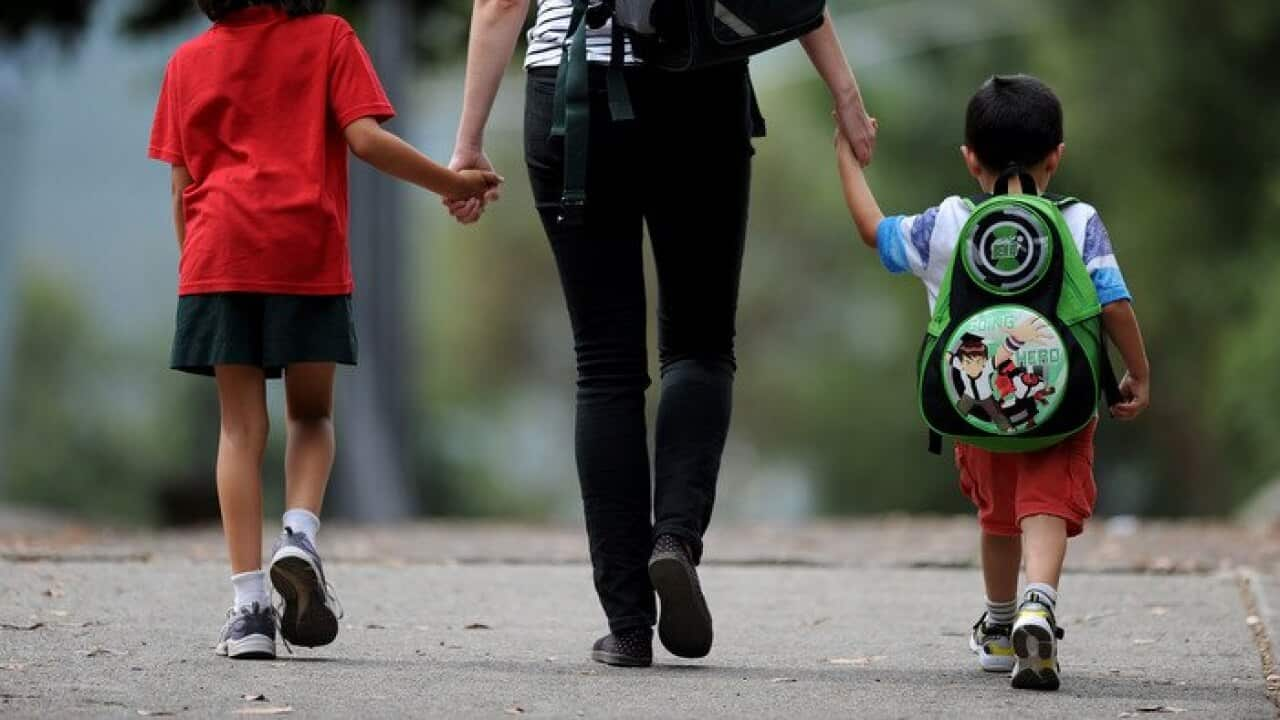The term “social distancing” has become part of our daily lexicon. The government’s directives in dealing with the spread of the coronavirus has been to remain 1.5 metres from other people, to protect against unnecessary contact. For autistic people, or parents of children with autism, this can be challenging.
Body awareness systems locate where our bodies are in space, and how different parts of our body are moving. Autistic people who have under-sensitive body awareness might stand too close to others, while those who are over-sensitive find difficulty in fine motor skills like manipulating small objects or tying shoe laces.
Kathrine Peereboom is a mother of three autistic boys and founder of Spectrum Support, and is worried about how directives on social distancing might affect autistic people.
“My middle son, he's a runner. So if I'm not holding on to his hand, he can be at the other end of the street or the shopping center in a blink of an eye,” she told The Feed.
“He also has a sensory processing disorder where he likes to go up and smell people.
“So with a 1.5 metre social distancing campaign at the moment it is very difficult when little Joshy goes up and starts smelling your chest or your navel.”
She says there needs to be more education to help people understand what autism is, and some of the “instinctual behaviours” that neurotypical people may not be aware of.
One in 70 people have autism in Australia, and Peereboom worries about the risks of those with autism being verbally abused. She’s experienced difficulties of that nature while raising her three young boys, and is calling on kindness in this anxious time.
“It really hurts, I'm going to cry but it just hits you in a place in your heart and in your soul,” she said.
“If I’m feeling strong, I will say to the person, listen, I'm sorry but my child has autism, it was not intended to encroach on your space or upset.
“Maybe you should have a look at what autism is.”
Peereboom is living with a new philosophy, she says before the anger erupts, “if you could imagine that person's face as the person you love most in the world, just change their face.”
“How would that change your attitude? I think if we could all just remember that kindness right now.”
Peereboom is preparing for the next few weeks for them all to spend time at home, she’s cleaned out her second garage and bought her boys a new trampoline. She says they need to shake off their physical energy, or they might get restless.
“I've got to look at ways to help manage those frustrations for them because my three boys are all non verbal,” she said.
“So communicating with them can be quite challenging. So right now it's, it's kind of cool, they're at home, they're getting the iPads a little bit more than they should.
“But it will change and, and my husband and I are already preparing for that.”
Chole Hayden, 22, is a who posts about misconceptions surrounding autism. She was diagnosed with autism when she was 13-years-old. She’s frustrated by the mixed messages she’s heard about social distancing, and says it’s hard to understand exactly what it all means.
“They're saying stay 1.5 meters away, we don't know if that means like, from who from what, in what situations,” she told The Feed.
Hayden says autistic people struggle with understanding social distancing and spatial awareness. She believes there needs to be consistent physical reminders, because she says, “we don't work well with verbal cues.”
She recalls walking into the supermarket a few days ago and seeing dots on the floor to create distance when standing in a queue.
“Those things are perfect because it gives us a very obvious here's where you're meant to stand. Here's where you are meant to be far away from someone else,” she said.
Hayden fears outbursts that might be directed to autistic people. She says if someone with autism has a meltdown or breakdown at this time, it could lead to them opting out of getting the essentials. She says everyday life is so different for autistic people, even a trip to the supermarket.
“You've got the crowd and you've got the lights, and you've got the new space, you've got all these different things.
“Which already are bringing us up into a sensory overload, even on a normal day. So we're not going to be thinking and we're not going to be focusing on these other cues, which we've only just been given in the past couple of weeks.”
Hayden believes this is how autistic people operate, and says it’s not her job to change because there's nothing wrong with autistic people. She says it’s up to neurotypical people to change how they react.
“Obviously, it's scary because we're in a pandemic,” she said.
“But just because we're going through this doesn't mean that you have the right to treat someone poorly because they think differently to you.”
--
If you believe you may have contracted the virus, call your doctor (don’t visit) or contact the national Coronavirus Health Information Hotline on 1800 020 080.
If you are struggling to breathe or experiencing a medical emergency, call 000.
SBS is committed to informing Australia’s diverse communities about the latest COVID-19 developments.


